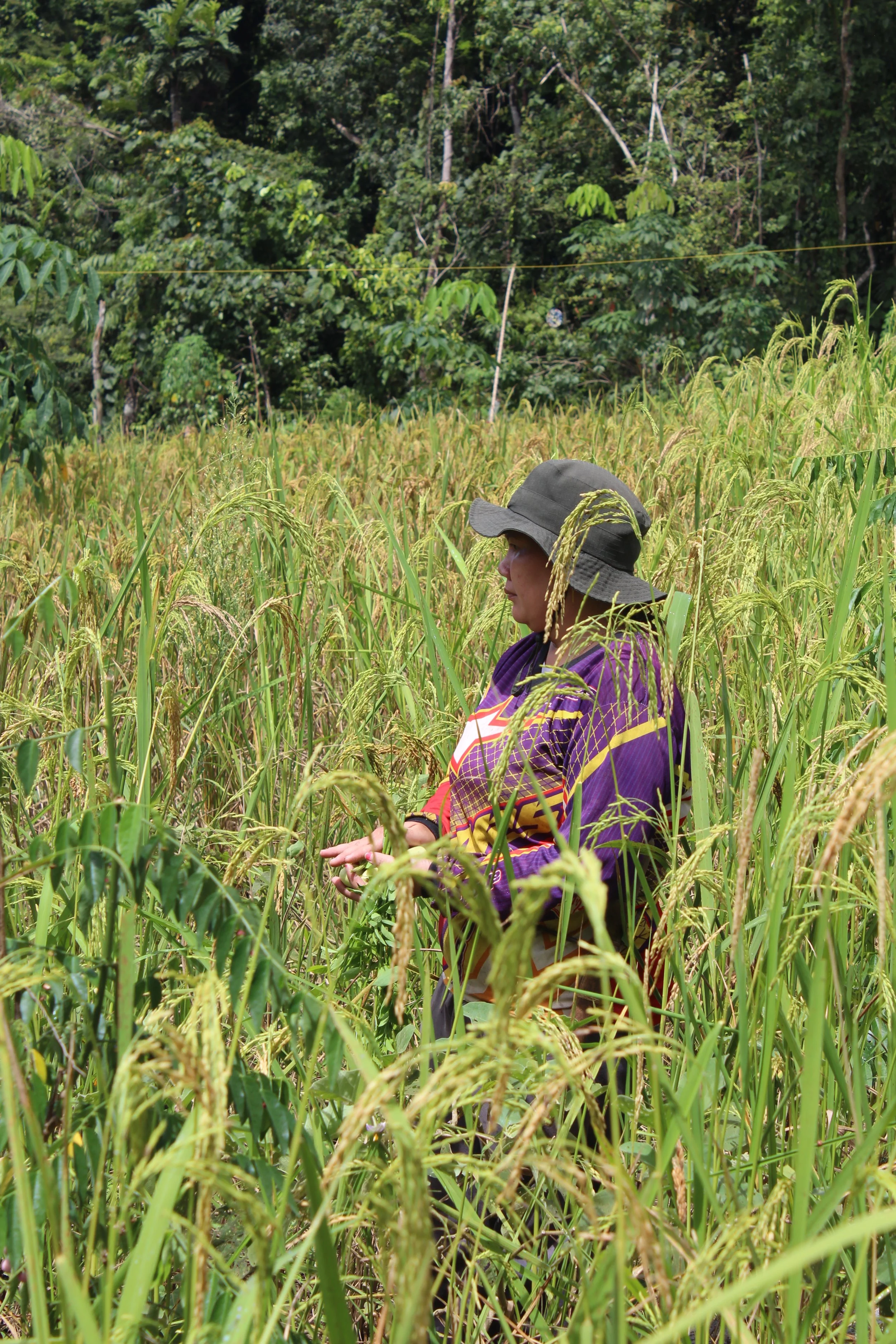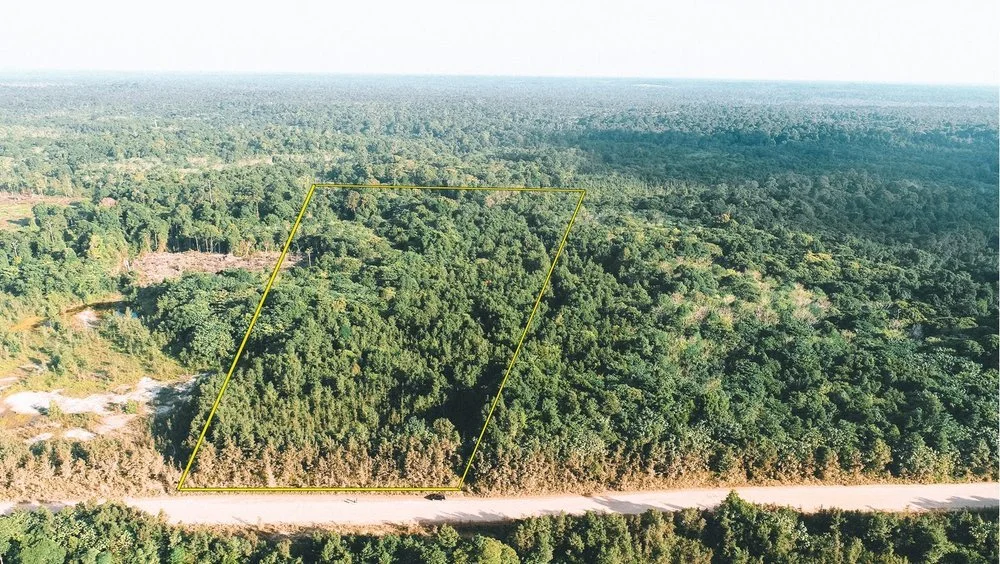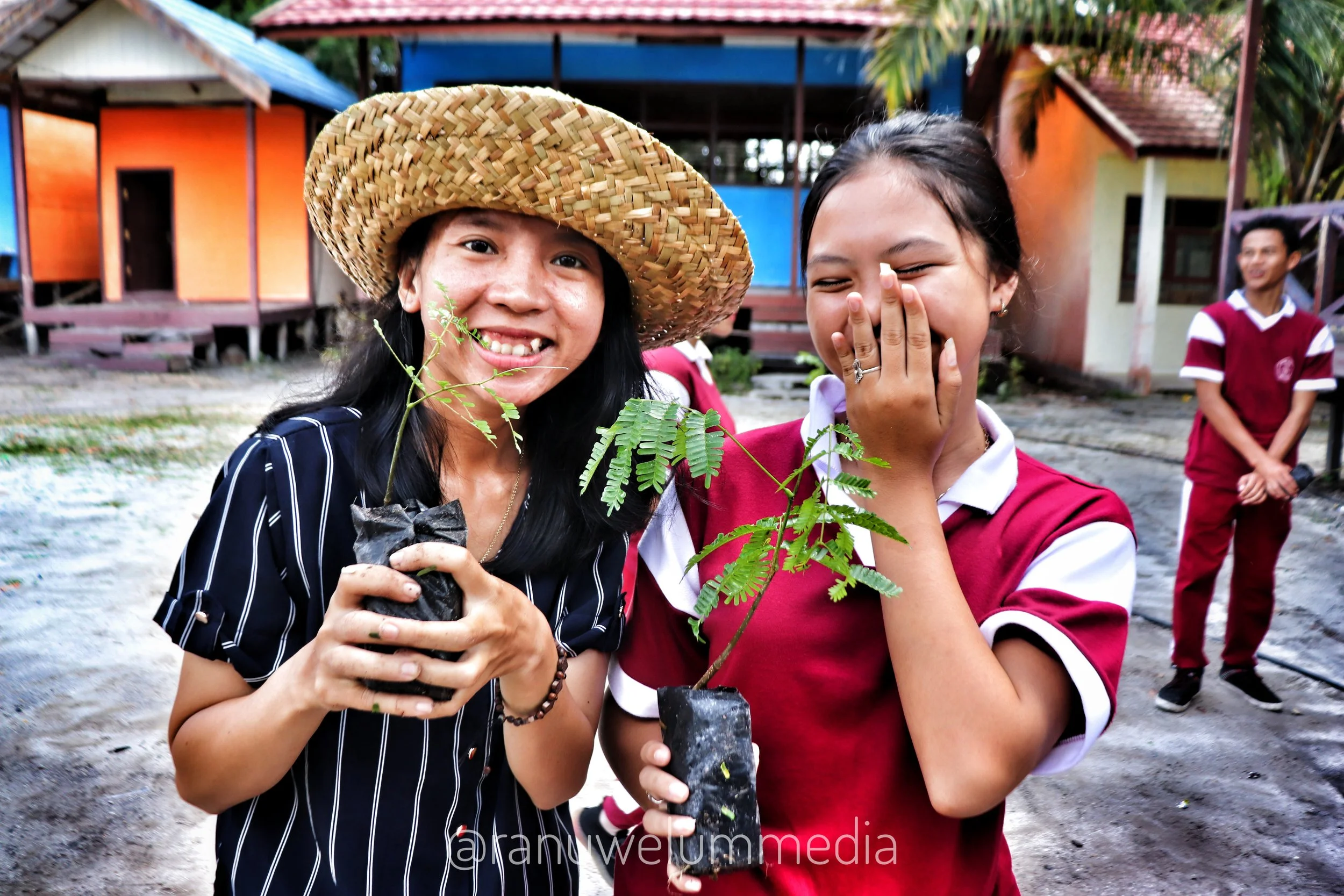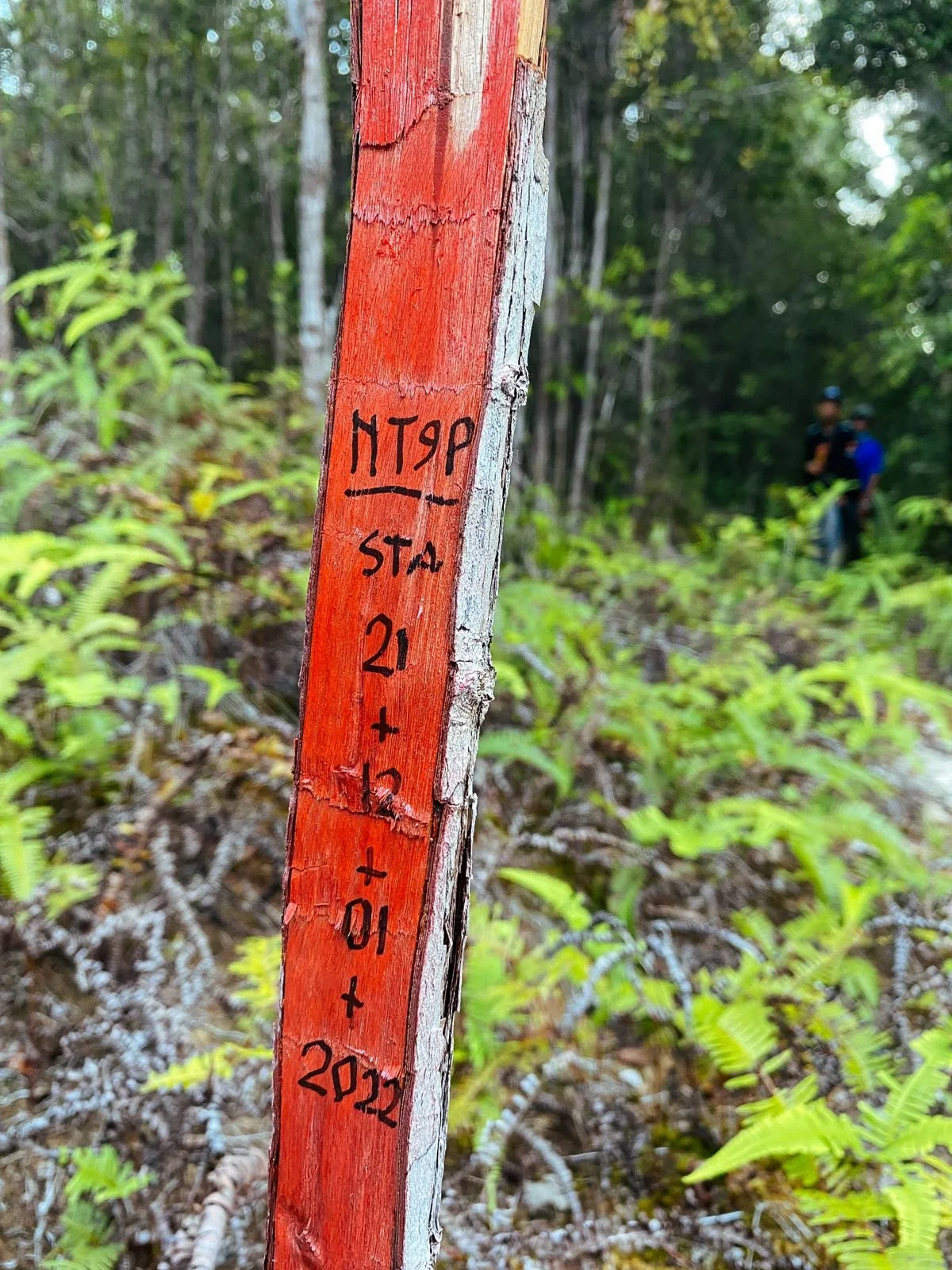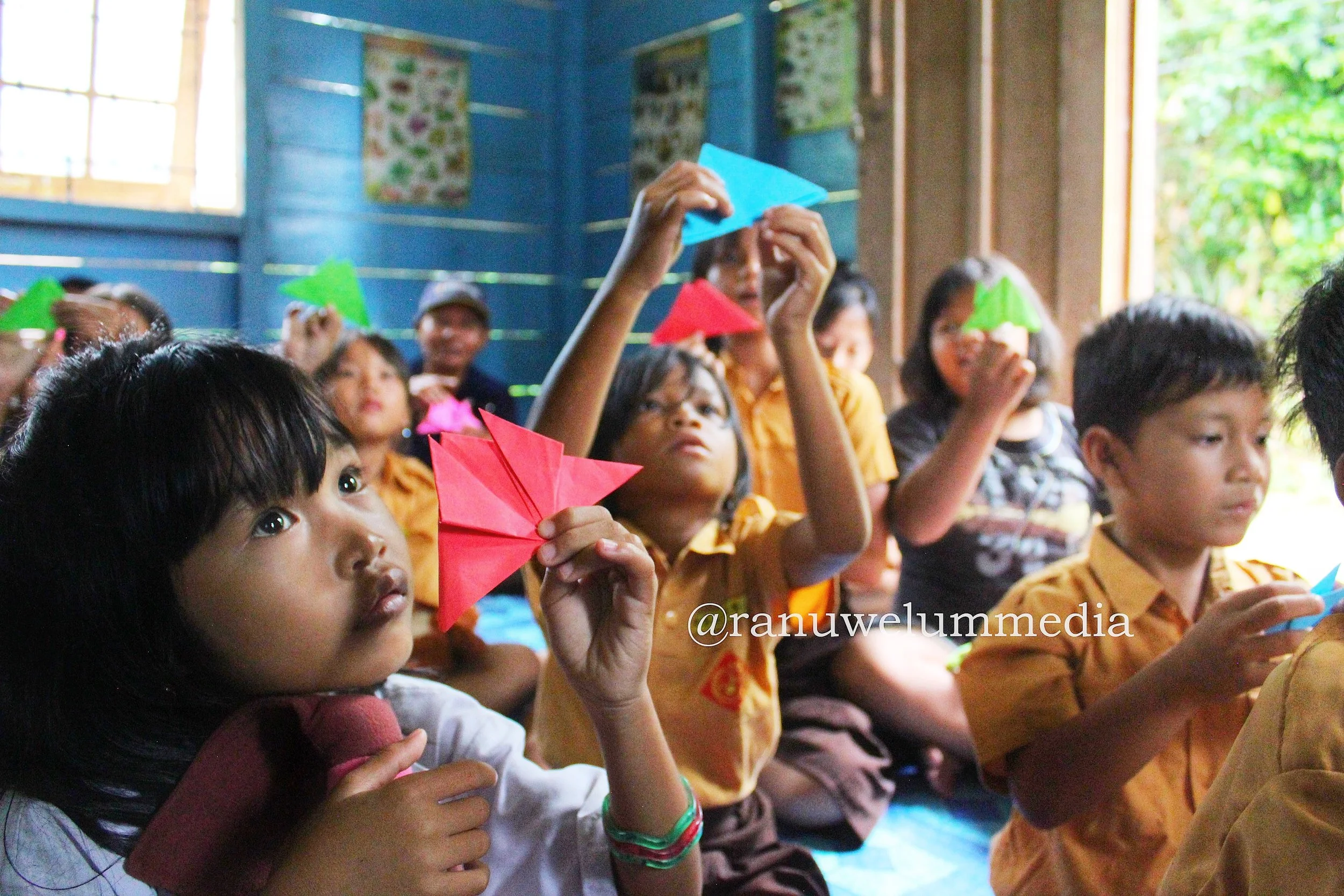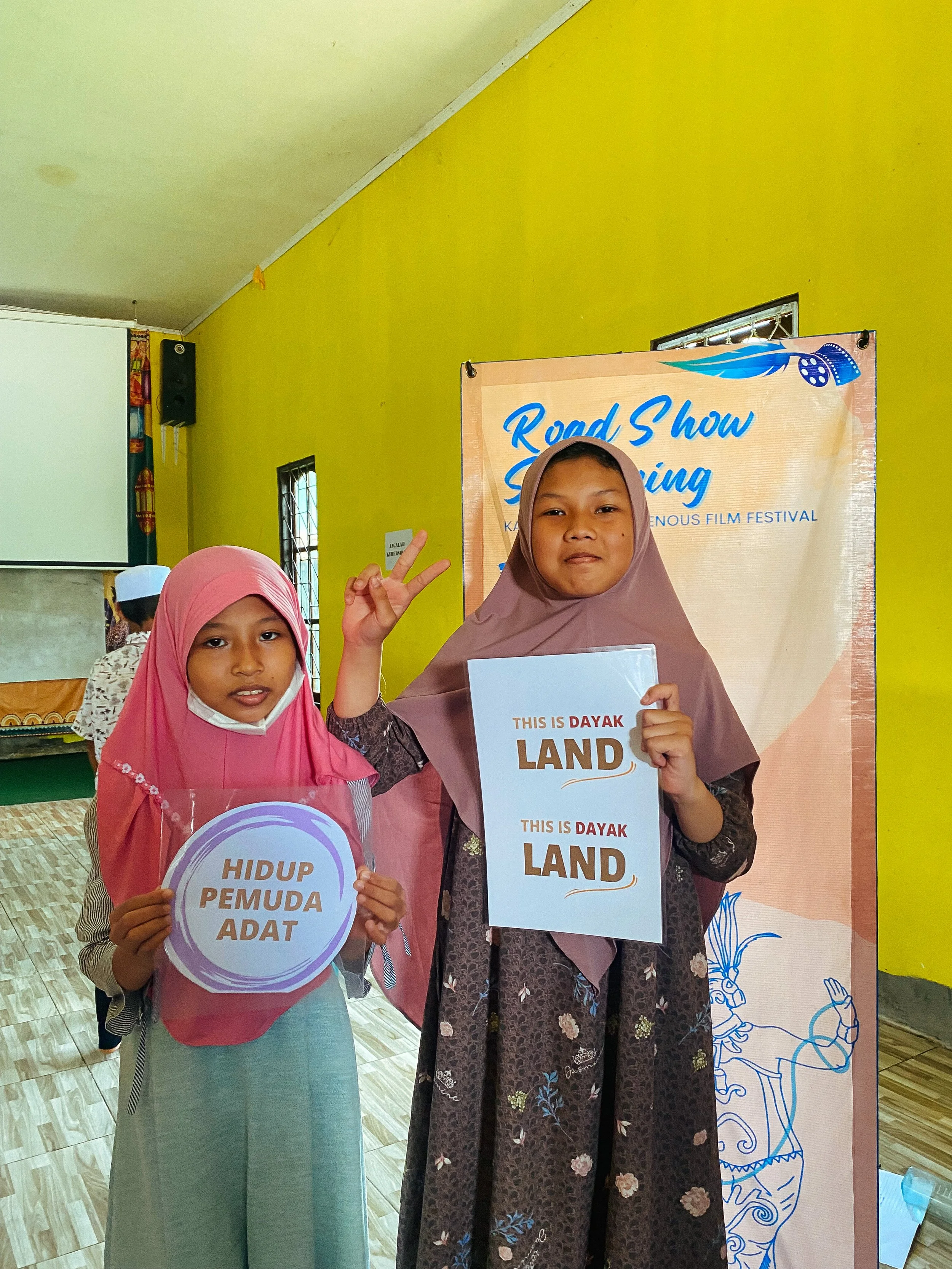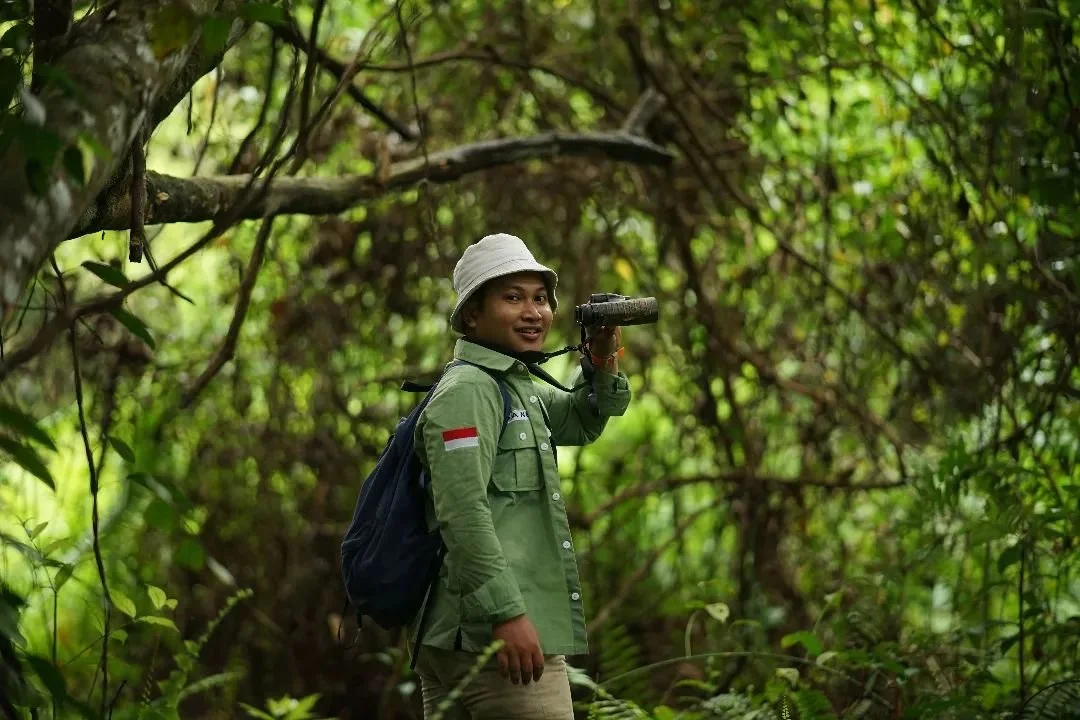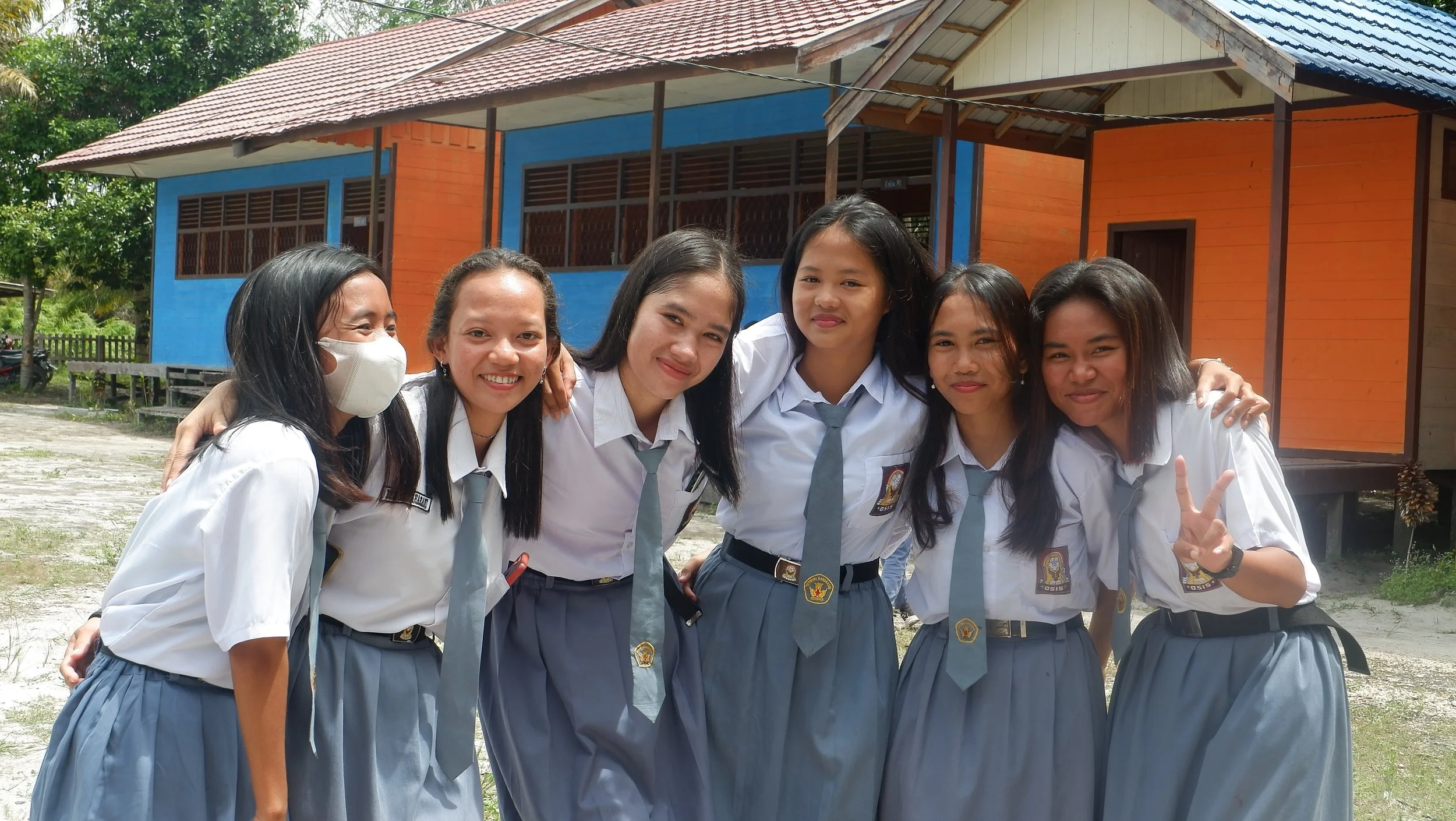We walked through the charred landscape, seemingly treading on burning embers with each step. Scorched trees lay scattered across the ground, some collapsing with a deafening crash. The sharp scent of charcoal filled the air, mixing with the acrid smell of lingering smoke.
We hiked to the former mining area to plant tree seedlings with the villagers. The path was steep and exhausting. The villagers seemed unfazed, walking without much complaint, something that amazed me. At the summit, I saw the land ravaged by mining. My feelings were mixed: anger at the destruction, but also a sense of hope because there were still those who chose to plant hope.
When installing the wooden poles, we estimated the depth of the peat to be around one meter. However, when the poles had already sunk 1.5 meters and the ground still felt soft, we realized that the peat here was deeper than expected. This is land that stores billions of tons of carbon,
Despite the ban, some Dayak communities are still trying to maintain their traditional practices more privately. Deep in the heart of Kalimantan, some elders still wake before dawn, gathering in secret to perform manugal as their ancestors did. They know the risks but refuse to let their traditions die.
This event, which lasts for three days, from Thursday, August 22 to Saturday, August 24 2024, not only shows a variety of films, but also becomes a lively cultural and artistic collaboration event in Central Kalimantan.
There are total 30 hectares that we need to secure. Every 15$ will save 100-meter square of the forest.
In the past few weeks, Ardi has visited Palangka Raya frequently for registering and taking test to enroll to the university. We supported him in any assistance he needed including driving him to the test location.
There were 26 children participating in our mini English class, ranging from 5 to 18 years old. They were very excited joining the class. The class was so beautiful outdoors with the beautiful sunset view behind the dock. The sun rays were not strong, instead so calming and aesthetic,
Like other Baduy houses, Teh Nasya also has a kitchen with firewood. Teh Nasya cooked eggs, fried tempeh, and fried rice when we arrived. The food was delicious, with the scent of firewood. In Baduy, women usually work in the fields. They plant rice, ginger, galangal, and various other plants.
I was placed at the University of Montana, a well-known university for its commitment to environmental research and education. When I first set foot at the University of Montana, I was mesmerized by the beautiful scenery of yellowish pikies changing the colors of the tree and the pleasant smell of pine trees. We can safely drink from the faucets because the water is so clean. Something that I never see and do in Kalimantan!
We do understand the ecological process. We have our unique traditional knowledge in understanding nature, but many times people misunderstand our culture. Forest for us is very important, we not only see forest and trees as a source of money or food.
Buying these properties necessary to be done before the mining companies bought the land. When we did survey last time, we found out that the area has been targeted as the next location of sand mining. Moreover, based on the information we obtained from the villagers, palm oil plantations will also be opened soon.
Children learned to recognize plants and made simple herbariums. They also learned the role of butterflies in the ecosystem. After some explanation, I asked the children to practice making butterfly origami paper. It seemed that this kind of lesson was a new thing for the children and they were very enthusiastic to take part in every class process that day.
Sekolah Adat (customary school) Anri Arai Atei is a formed to help Dayak Maanyan kids in Talekoi village and around to preserve their culture in the midst of globalization and a wave of technology.
For the whole month, we visited ten villages and schools in total; all located in four different regencies. By the end of the roadshow, there were total 1,091 people participated in the festival.
For the whole week from 4th-9 August, the village held a small festival. Children were dancing every day, practicing their Dadas dance, Giring-Giring dance and Bahalai dance. Women were cooking traditional snacks such as lamang (sticky rice cooked inside bamboo) and kakiak duyu (sticky rice flour made into small balls and cooked with coconut milk and brown sugar),
One of the most unique ecosystems is the peat swamp forest, this is because this ecosystem has relatively different characteristics from other forests in general. Different forest conditions also affect the types of flora and fauna in it. In addition, this ecosystem has an important role in the balance of the world's climate. This is because peat stores up to 30 – 70% carbon stocks.
Talekoi Forest is the habitat of protected and critically endangered biodiversity such as Nepenthes khasiana and Aquilaria malaccensis (agarwood). There is also traces of Orang Utan. The target is to raise 6,000$ by the end of August. Every 15$ will save 100-meter square of the forest.
257 Indonesian youths joined this movement to plant 1,254 trees across Indonesia in their homes, communities, and schools. The young people come from Mentawai, Padang, Central Kalimantan, West Kalimantan, East Kalimantan, South Kalimantan, Bali, Jakarta and Central Sulawesi.
I am also a dreamer. I want to teach in a high school. Since my hamlet did not have a high school, my friends and I had to travel a long distance to school and endure numerous challenges. Children would no longer have to travel dangerous company roads or live away from their parents if my village had teachers and schools.



